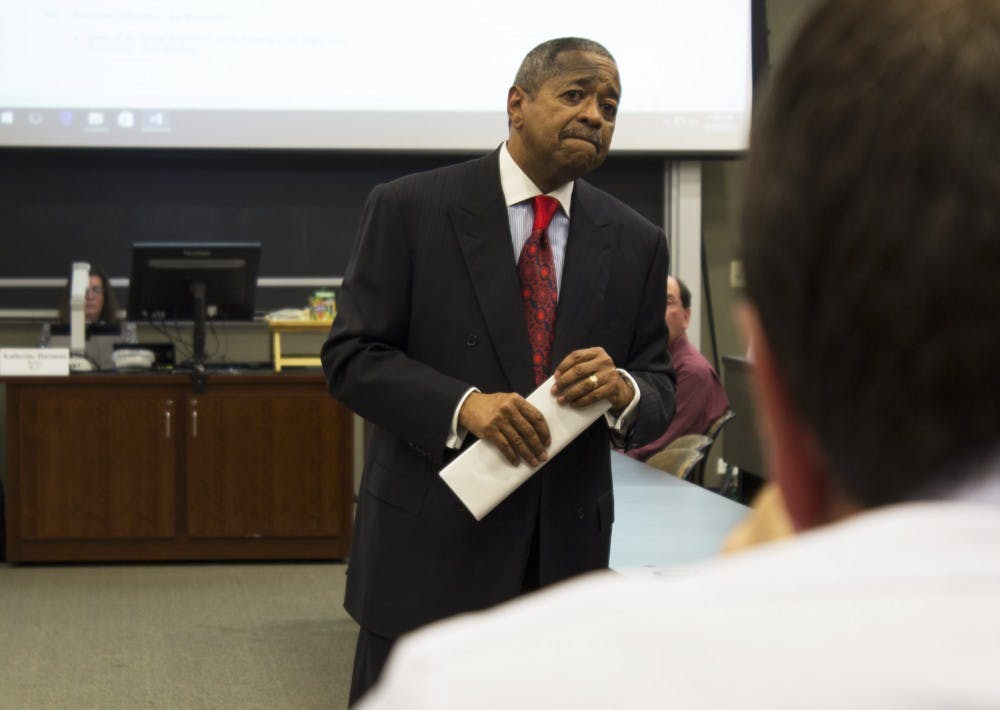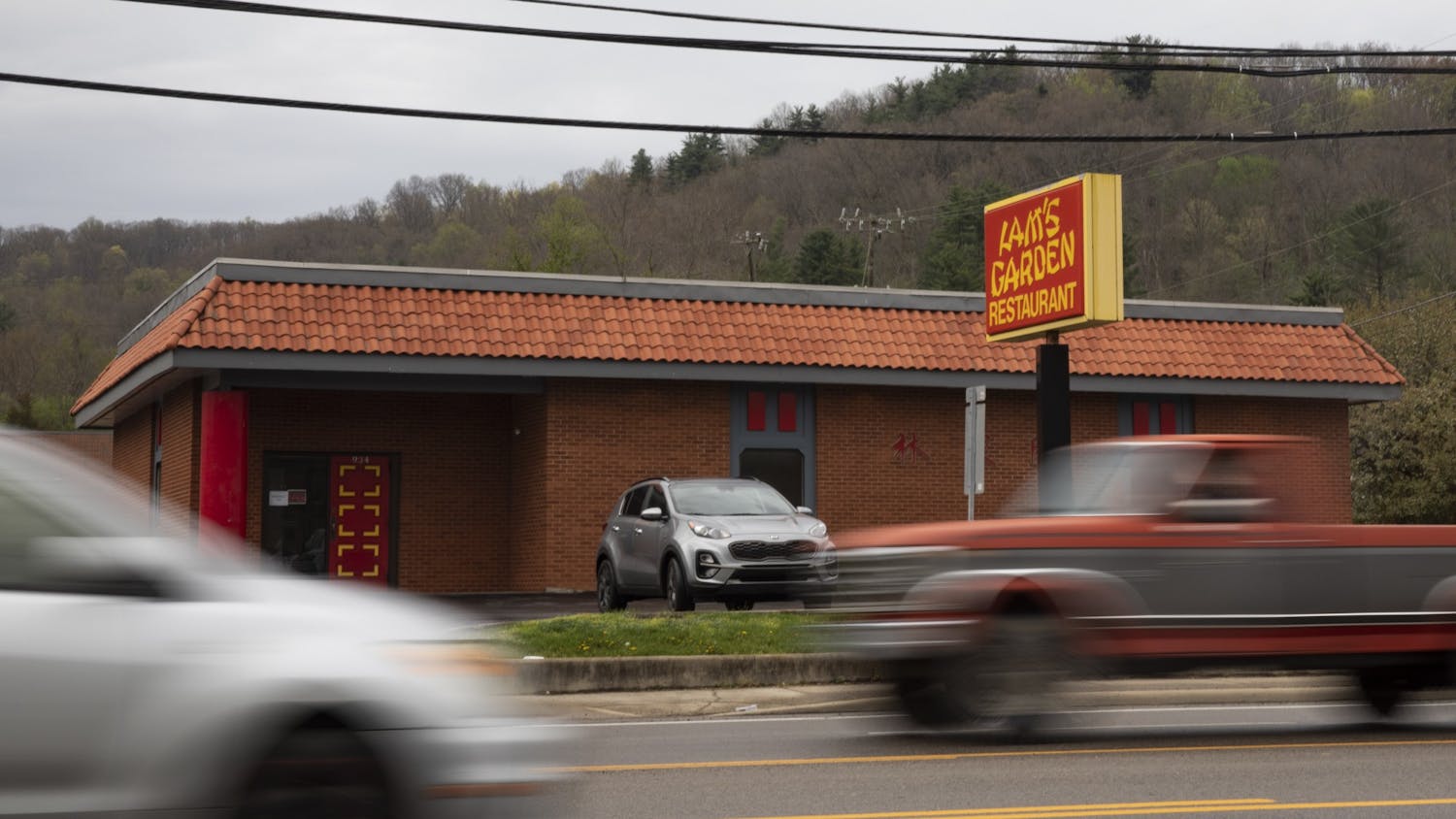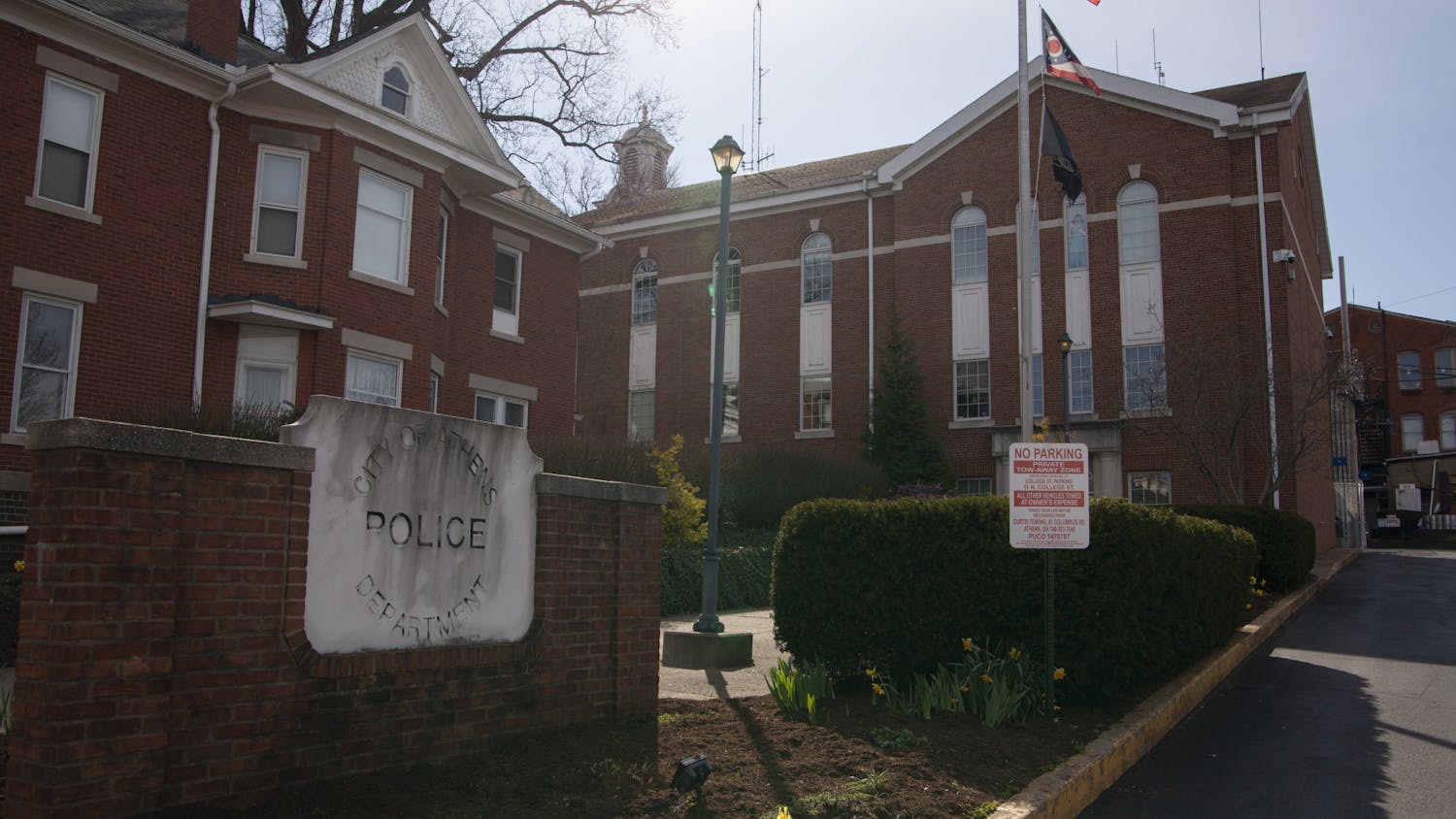In the past month, Pam Benoit, executive vice president and provost, signed Faculty Senate’s three most recently passed resolutions.
The resolution passed in October addressed Ohio University’s naming policy for buildings. In November, Faculty Senate passed two resolutions about the handbook language for deans’ evaluations, Faculty Senate Chair Joe McLaughlin said.
Because Benoit was absent at November’s meeting, she is scheduled to present on OU’s national rankings at Monday’s meeting. The Board of Trustees brought the U.S. News and World Report ranking to attention in its October meeting, and the Office of the Executive Vice President and Provost has been reviewing statistics related to rankings.
OU President Roderick McDavis is scheduled to speak as well, specifically about Ohio House Bill 48, a bill under review in Columbus that could allow concealed weapons on campus. If passed, the law gives power to governing boards at Ohio’s public colleges and universities, such as the Board of Trustees, to decide if concealed weapons should be permitted on campus.
“The concealed carry law is definitely something faculty has been talking about on and off for quite a while as it’s been moving through the legislature,” McLaughlin said.
McLaughlin said after McDavis leaves the meeting, he may talk about taking action if senate wants to. McLaughlin is open to getting a committee together or having the executive committee look further into the bill. That would serve to create a plan if the bill is passed, as the Board of Trustees has not taken a public position on the topic, McLaughlin said.
Another topic for McDavis to address is the discussion about “sanctuary campuses” in response to changes the incoming administration in Washington has proposed.
“(This) is something that has been talked about across the country, so people are talking about it here, too, so I expect that some faculty who are not on senate will show up to talk about it,” McLaughlin said.
A resolution and a policy review will be brought up during Monday’s meeting. At the meeting, Faculty Senate will vote on a resolution of revising •credit hour requirements for certificates.
“A certificates task force was formed by the program’s committee (University Curriculum Council) in 2015, in November of 2015. … They came up with a series of recommendations about what should be done with credential, as it’s referred to,” Charles Buchanan, chair of the Educational Policies and Student Affairs Committee, said at the Nov. 7 Faculty Senate meeting. “Those recommendations were then sent to the UCC Programs’ Committee, and they came up with a series of definitions and requirements for certain certificate programs.”
Although there have not been any changes made to the resolution since last month, faculty senators have varying opinions on who the resolution should include and how much accommodation should be established.
“I talked to some senators and in a college there’s a program where they would like for their graduate certificates to be more than the 20 maximum,” McLaughlin said. “(This is) also complicated and there is a process under review to create an exemption process, but they were wanting us to put in language that said we will look at an exemption process and report back to senate in a couple months from now.”
The policy review McLaughlin will bring to the senate’s attention is the result of a discussion with the executive committee about how often when voting, the senate uses a “voice vote,” which McLaughlin said can be overwhelming.
“I think I had a desire to remind the senators, especially because we had some new senators at the beginning of the year, that there are other options for votes,” McLaughlin said. “I think there may be times when people cast their votes that they would like to have a very clear record for their constituents that they voted against something or for something. People may want to be on the record, and I just want to remind people that they have the option to call for those kinds of votes.”






